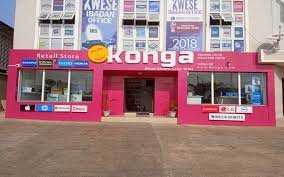Ghana has emerged as the only African country with fully interoperable multiple instant payment systems (IPS), outpacing nations like Nigeria, Kenya, and South Africa in digital payment integration.
A Standout in Africa’s Digital Payment Landscape
According to KPMG’s 2024 West Africa Banking Industry Customer Experience Survey, Ghana is the only country on the continent where multiple IPS platforms work seamlessly together. This distinction sets it apart from 20 other African nations that collectively operate 28 IPS, with only seven having more than one system.
Ghana’s success is attributed to its two key IPS platforms: GhIPSS Instant Pay (GIP) and Mobile Money Interoperability (MMI). These systems allow real-time fund transfers across different platforms, enhancing financial inclusion and transaction efficiency.
A Surge in Digital Transactions
The impact of IPS in Ghana has been remarkable. As of October 2024, transaction values processed through GIP skyrocketed by 174%, while transaction volumes increased by 32% compared to the previous year. Mobile money remains the most widely used payment method, with total transactions reaching GHS 2.36 trillion—a 55% year-on-year rise. The number of mobile money transactions also grew by 20%, hitting 6.6 billion.
Regulatory oversight, advancements in AI-driven fraud detection, and evolving consumer demands for fast and secure transactions continue to drive Ghana’s digital payment growth. As the country cements its leadership in Africa’s financial innovation, it sets the benchmark for seamless and accessible payment solutions across the continent.







2 replies on “Ghana Leads Africa in Instant Payment System Interoperability”
[…] move highlights the growing role of stablecoins in financial services, especially in emerging markets where local currencies often face volatility. But with regulatory […]
[…] Ghana-based digital banking startup Affinity Africa has secured $8 million in seed funding to expand its financial services in a market dominated by mobile money. The fintech aims to bridge the gap between traditional banking and underserved populations by offering a low-cost, digital-first banking model. […]